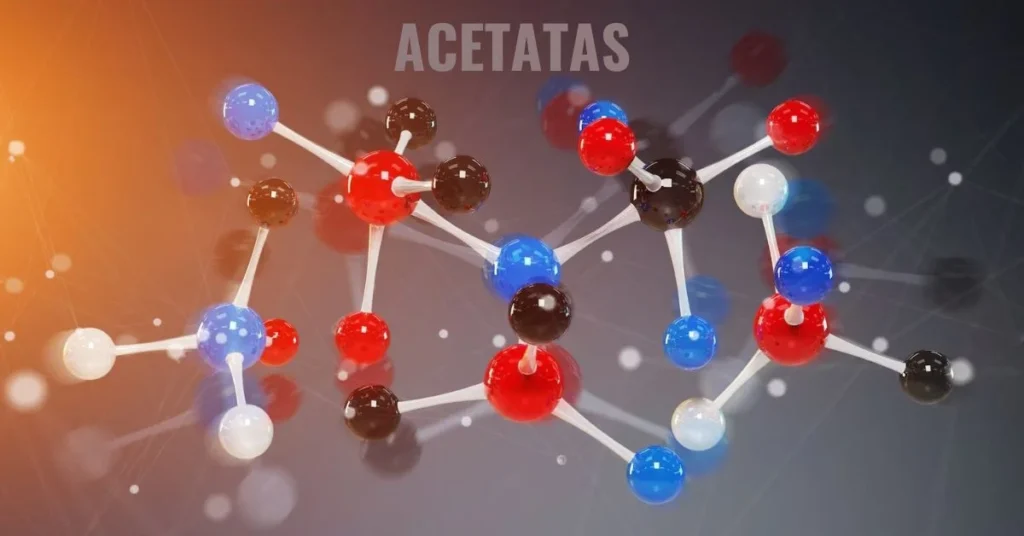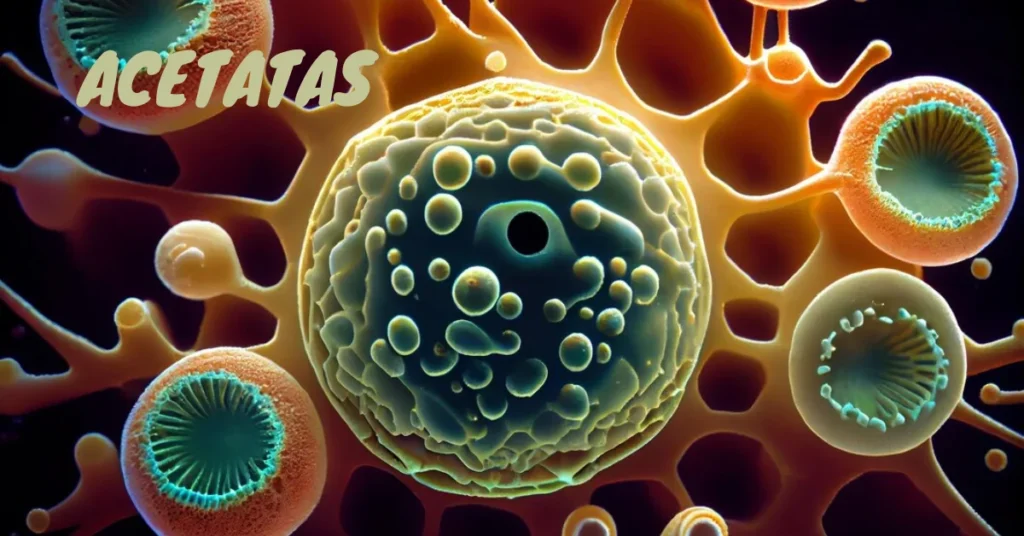Acetatas is A Chemical Compound with Multifarious Applications in Various Industries. Acetatas are chemicals that have found their applicability in a wide number of applications in various industries. Whether it be manufacturing or healthcare, the contribution of acetatas contributes to better productivity and efficiency in various sectors. Within this article, we have discussed the main benefits and uses of acetatas in detail. Whether you are looking for information about how acetatas can benefit you or whether you have a profession in which it is used, this book will provide you with the information that you need.
What are acetatas?
Acetates refer to the salts or esters of acetic acid, one of the significant components of vinegar. The compounds have versatile applications, from the process of industrial usage up to becoming food additives. Some of the common acetates include sodium acetate, calcium acetate, and potassium acetate. These compounds are primarily prepared through the reactions involving the use of metals and acetic acid or other organic compounds that make them of the utmost importance in most chemical processes.
Key Benefits of Acetatas

The uses of acetatas are diverse and have helped to play a very key role in many processes. The benefits of acetatas can be found in almost all walks of life- from agriculture to health care, and manufacturing.
1. Application Versatility
The main advantage of acetatas remains versatility. In food preservation, industrial production, and even medical applications, acetatas have played a very important role in optimizing effectiveness and results.
2. Cost-Effectiveness
Acetatas are less expensive to manufacture, and thus become a cost-effective option for many applications. The cheap production of acetatas is very beneficial to large-scale industries as they rely on acetatas for their daily operations.
3. Environmental Friendliness
Some of the acetates are even environmentally friendly compared to the other chemicals, but for example, calcium acetate is biodegradable; therefore, as long as they are disposed of, there will be no significant harm to the environment so it makes them more appealing for sustainable ways.
4. Improving Product Quality
Acetatas have also been used in food industries to improve the quality of products. For example, they are used to preservative packaged foods; thus, they prolong their shelf life and freshness.
5. They are effective in water treatment.
Acetatas, specifically potassium acetate, is used in water treatment. This chemical softens water by reducing the hardness of calcium and magnesium ions. Due to this reason, it becomes an essential chemical for any industry that requires pure water in its production.
Common Uses of Acetatas

Acetatas are used in a vast number of industries. Some of the common uses include:
1. Food Industry
The main applications of acetatas in the food industry are to preserve and flavor a range of food products. For example, sodium acetate is a commonly used food additive. It is either added as a seasoning or used as a preservative for snacks, sauces, as well as baked products. It serves to keep food fresh for long periods as well as preserve the freshness of foods. It is further applied in food coloring besides being a stabilizer for some beverages.
2. Medical Uses
Acetates are different medical applications. Potassium acetate is used as a diuretic treatment for heart-related problems by the change in potassium levels in the body. Calcium acetate is applied in the medicinal field as a phosphate binder to treat the levels of phosphate found in patients suffering from kidney malfunctioning to stop its excessive concentration in the blood. The intravenous solutions are employed in the medical industry regarding the use of acetates for balancing electrolytes in their application.
3. Production and Textiles
Acetatas are of high importance to be applied within the industries of production and textiles. Acetate fibers are highly prevalent in textile fabrics since they display silkiness and gloss. Normally, they come in clothes, upholstery and curtains. Furthermore, acetatas find their use in the production of plastics where films are put on for application in packaging as well as photographs.
4. Water Treatment
The use of acetates in the treatment process includes softening of water. It can reduce calcium and magnesium ion concentration in the water treatment by the use of which makes water soft. Softened water is necessary for the processes involved in laundry brewing, and manufacturing, among many more as mineral deposit prevention has to be guaranteed.
5. Agriculture
Acetates are utilized by farmers to enrich the qualities of the soil as well as to promote crop growth in the plants. Calcium acetate is used in conditioning the soil towards its acidity and enriching the penetration of nutrients as well. Acetates may also be applied in the treatment of plant ailments by serving as a fungus or pesticide.
6. Chemical Production
The most interesting feature of acetatas is that they can act as both intermediates and catalysts in chemical syntheses. These compounds catalyze some different chemicals and products produced by chemical reactions, for example, synthetic fibers, paints, coatings, pharmaceuticals, and so forth. Acetatas do allow specific chemical reactions making them valuable in these areas.
How Acetatas Assist the Environment

Mostly, acetatas are environmentally friendly because they usually end up as biodegradable. Consider, for example, calcium acetate that is consumed during the winter season; it is used in undertaking de-icing applications that are required in most parts of the regions where applying a traditional salt deicer would be harmful to nature. They are nontoxic for most applications yet have minor impacts on soils and water if applied within limits; they are a better option than their counterparts, which are chemical substances.
Precautions in Applying Acetatas
Acetatas are nontoxic in general, but they still require some precaution during their application when they need to be applied on a particular area or being manipulated. All the practices related to handling must be complied with the guidelines provided.
1. Storage
Acetatas need to be placed in a cool, dry location not exposed to sunlight and heat. It helps avoid deterioration and ensures that the compound is stable.
2. Personal Protective Equipment
It is always recommended that while using concentrated acetates, one should use personal protective equipment, like gloves, goggles, and lab coats to prevent its exposure to skin or eyes during handling.
3. Practices on Disposal
Acetatas must always be disposed of according to local regulations. In general, acetate is safe to dispose of in normal waste systems but should never be poured into water sources to avoid contaminating the water.
4. The Future of Acetatas
With their mass use in several industries, the future appears bright for acetate. As more and more industries require alternatives that will prove to be sustainable and economical, the demand for acetates will continue to soar. Further innovation in their uses, especially renewable energy sources, water treatment, and biodegradable products will be of particular interest and interest in these compounds. Further with the constant development types of new acetata types, the number of prospects on their applicabilities in any field seems infinite.
Conclusion
Acetatas constitute some of the most valuable chemical products. Their multiplicity is found in relatively cheap applications and by environmentally friendly methods of application. Those are key chemicals for almost all imaginable ranges of both commercial applications as well as personal to fill a place from water and food conservations down through the treatment of drugs or some medicines manufacturing. As industries evolve and look for greener alternatives, there is no doubt that acetate will remain at the forefront of innovation. When users are aware of the various advantages and applications of acetate, they will understand the importance of this compound and maximize it.











